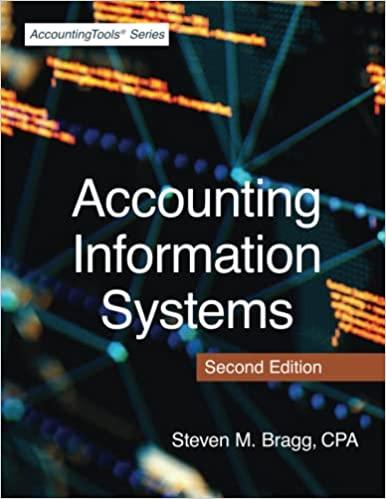Question
1. ch 1 Which of the following is considered an assurance engagement? (1) Bookkeeping (3) Compilation (2) Preparation (4) Audit 2. Which of the following
1. ch 1
Which of the following is considered an assurance engagement?
(1) Bookkeeping (3) Compilation (2) Preparation (4) Audit
2. Which of the following engagements is most likely to be considered an operational audit?
(1) The auditor evaluates the organizations efficiency in processing payments. (2) The auditor examines information presented in an entitys financial statements to determine whether the financial statements are presented fairly in accordance
with the applicable financial reporting framework. (3) The auditor determines whether the organization is following provisions of laws
and regulations. (4) The auditor assists the client in preparation of financial statements.
3. In a financial statement audit, the auditor obtains a reasonable level of assurance about whether the financial statements are free of material misstatement in order to express an opinion. In order to obtain reasonable assurance, the auditor must (1) have prior experience in the industry in which the audit client operates.
(2) examine all documents available that support the financial statements. (3) obtain sufficient audit evidence. (4) test controls around significant transaction cycles.
ch2
An auditor of an entity subject to the rules of the SEC must conduct the financial statement audit in accordance with (1) PCAOB standards. (2) Statements on Standards for Accounting and Review Services.
(3) International Auditing Standards. (4) Generally Accepted Government Auditing Standards.
Which of the following provides authoritative guidance for the auditor of a nonpublic company?
(1) An article in the Journal of Accountancy that discusses new audit requirements (2) Information obtained from continuing professional education programs (3) Publication from state CPA societies that provides questions and answers on frequently asked audit questions (4) Statements on Auditing Standards
The Public Company Accounting Oversight Board (PCAOB) has the duty to (1) select the public accounting firm for the issuers annual audit. (2) establish rules related to the preparation of audit reports for nonissuers. (3) conduct investigations concerning registered public accounting firms. (4) conduct disciplinary proceedings for nonpublic accounting firms.
Step by Step Solution
There are 3 Steps involved in it
Step: 1

Get Instant Access to Expert-Tailored Solutions
See step-by-step solutions with expert insights and AI powered tools for academic success
Step: 2

Step: 3

Ace Your Homework with AI
Get the answers you need in no time with our AI-driven, step-by-step assistance
Get Started


